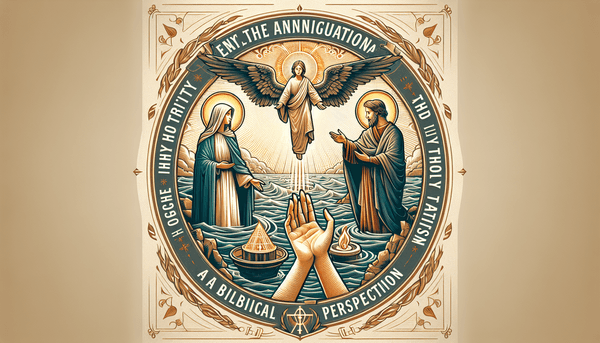The Lordship of Jesus
At the heart of Christian faith lies the belief in the Lordship of Jesus. Jesus is revered not only as the Son of God but also as the one who lived a sinless life on Earth, died on the cross for the forgiveness of our sins, and triumphantly rose again. In Philippians 2:9-11, we learn that God exalted Jesus to the highest place and gave Him the name that is above every name, ensuring that every knee should bow and every tongue acknowledge that Jesus Christ is Lord. This acknowledgment is not just a verbal declaration but a call to honor and obey Jesus, aligning our lives with His example and teachings, understanding that He holds the ultimate authority over heaven and earth.
Baptism
Baptism is an outward expression of an inward faith, a symbolic act that represents a believer's identification with the death, burial, and resurrection of Jesus Christ. As explained in Romans 6:4, through baptism into death, we are buried with Him so that, just as Christ was raised from the dead, we too may live a new life. Baptism by immersion in water serves as a public declaration of one's faith in Jesus Christ and a pledge to walk in His ways. It signifies the washing away of sins and marks the beginning of a new journey as a member of the body of Christ. For deeper insight into the transformative power of such faith practices, consider exploring various topics of interest that have emerged from conversations about the Bible and personal belief.
Grace
Grace is perhaps one of the most beautiful aspects of Christian theology. It refers to the unmerited favor and love that God showers upon us, despite our unworthiness. Ephesians 2:8 reminds us that it is by grace we have been saved, through faith, and this is not from ourselves, it is the gift of God. Grace is the divine assistance given to humans for their regeneration and sanctification. Through grace, we receive forgiveness and salvation, empowering us to live transformed lives that reflect God's love and goodness.
FAQ
Q: How can the lordship of Jesus be explained?
A: The lordship of Jesus can be explained by understanding that Jesus is the Son of God who came to earth, lived a sinless life, died on the cross for the forgiveness of sins, and rose again. He holds the highest authority and is to be honored and obeyed as Lord by all creation.
Q: What does repentance involve?
A: Repentance involves acknowledging and confessing our sins to God, feeling genuine remorse for them, and making a conscious decision to change our ways and follow God's will. It signifies a change of heart and a commitment to live in obedience to God's commands.
Q: What is baptism and what does it signify?
A: Baptism is a symbolic act that represents a believer's identification with the death, burial, and resurrection of Jesus Christ. It is a public declaration of faith in Jesus Christ and signifies the washing away of sin and the beginning of a new life in Christ.
Q: How is grace defined in the Christian context?
A: Grace is the unmerited favor and love of God, freely given to us despite our unworthiness. It is through God's grace that we receive forgiveness, salvation, and the ability to live a transformed life.
Q: What does it mean to trust God, and how can we do it?
A: Trusting God involves believing in His faithfulness, seeking His will through prayer and reading the Scriptures, and surrendering your fears and worries to Him. It is a journey of faith and reliance on His providence and love.






